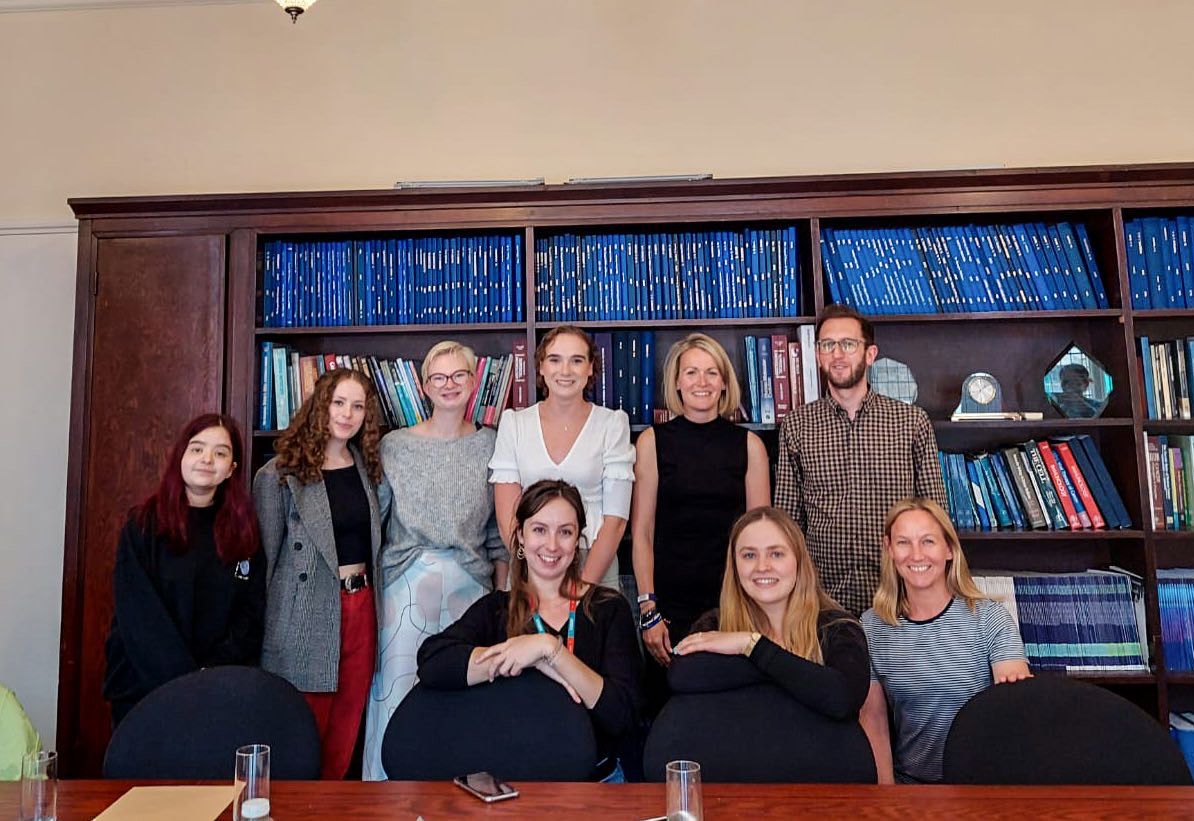
Radiation Reveal: How radiotherapy affects teenagers and young adults
Dr Lisa Whittaker recaps the important work that has been carried out in the two years since the launch of the collaborative public engagement programme
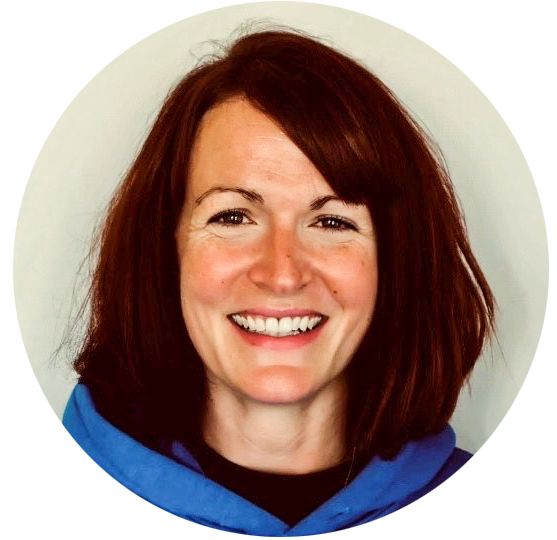
Dr Lisa Whittaker
Dr Lisa Whittake
We know that having cancer as a teenager or young adult is different from having it as a child or older adult, as cancer diagnosis comes at a time with great changes taking place in terms of life development and it can greatly disrupt physical health, social and educational goals, and psychological well-being.
Radiotherapy is a critical part of treatment pathways for cancer, but is often known and understood less than chemotherapy. Patients’ experiences also vary greatly. It is therefore important to understand these experiences so we can improve patient care and outcomes.
We wanted to understand young people's experiences of radiotherapy and give them the opportunity to meet radiation researchers funded by Cancer Research UK (CRUK) RadNet City of London.
In spring 2022, we developed a creative, collaborative public engagement project called Radiation Reveal. The project brought together a group of young radiotherapy patients in a series of workshops with biomedical researchers across London to better understand patient experiences of cancer and treatment. The 10 young adults, aged 17-25 and all living in England, had a range of different cancer diagnoses. Some were diagnosed as young as 12, some during the Covid-19 pandemic, but all had been treated with radiotherapy as part of their treatment.
Understanding young people’s experience
We worked with Centre of the Cell, a science education centre based at Queen Mary University of London, to develop and deliver a series of three online workshops in March 2022. These workshops allowed the young adults to share their stories while also connecting with biology, physics and oncology radiation researchers. The researchers gained an understanding of patient experiences of cancer and treatment. The project also aimed to produce a resource to help future patients.
The young adults shared experiences of being young and diagnosed with cancer, of their radiotherapy treatment, the side effects they’d experienced and their worries about other late effects. They spoke about measures they’d taken to protect their future fertility. What was clear from this project was the importance of support, especially peer support. A few participants said this was the first time they’d been able to speak to people of a similar age who had been through cancer and treatment. All of the young adults were keen to give something back and turn a negative experience into something positive.
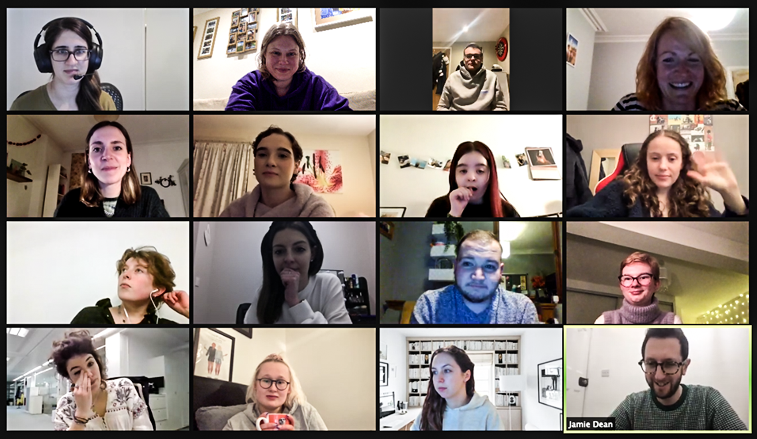
For some of the researchers, this was the first time they had spoken to patients with lived experience of cancer and radiotherapy. Researchers were keen to understand the realities of living with a cancer diagnosis and going through treatment at a young age. They were also curious to find out about young adults’ perceptions of cancer research and how research being done in the lab ends up in a clinical setting.
‘Radiotherapy can be overlooked’
The group chatted about radiotherapy a lot during the workshops and all agreed that more awareness of this treatment is needed. One young adult said:
One aim of the project was to identify what people would like to have known about radiotherapy before or during treatment. Another young adult said:
The project provided peer support and two of the young people created a new social media account and email address offering support to other young people diagnosed with thyroid cancer. In the final online workshop the group came up with 10 tips for healthcare professionals involved in radiotherapy to improve the experience for other young people.
Top ten radiotherapy tips

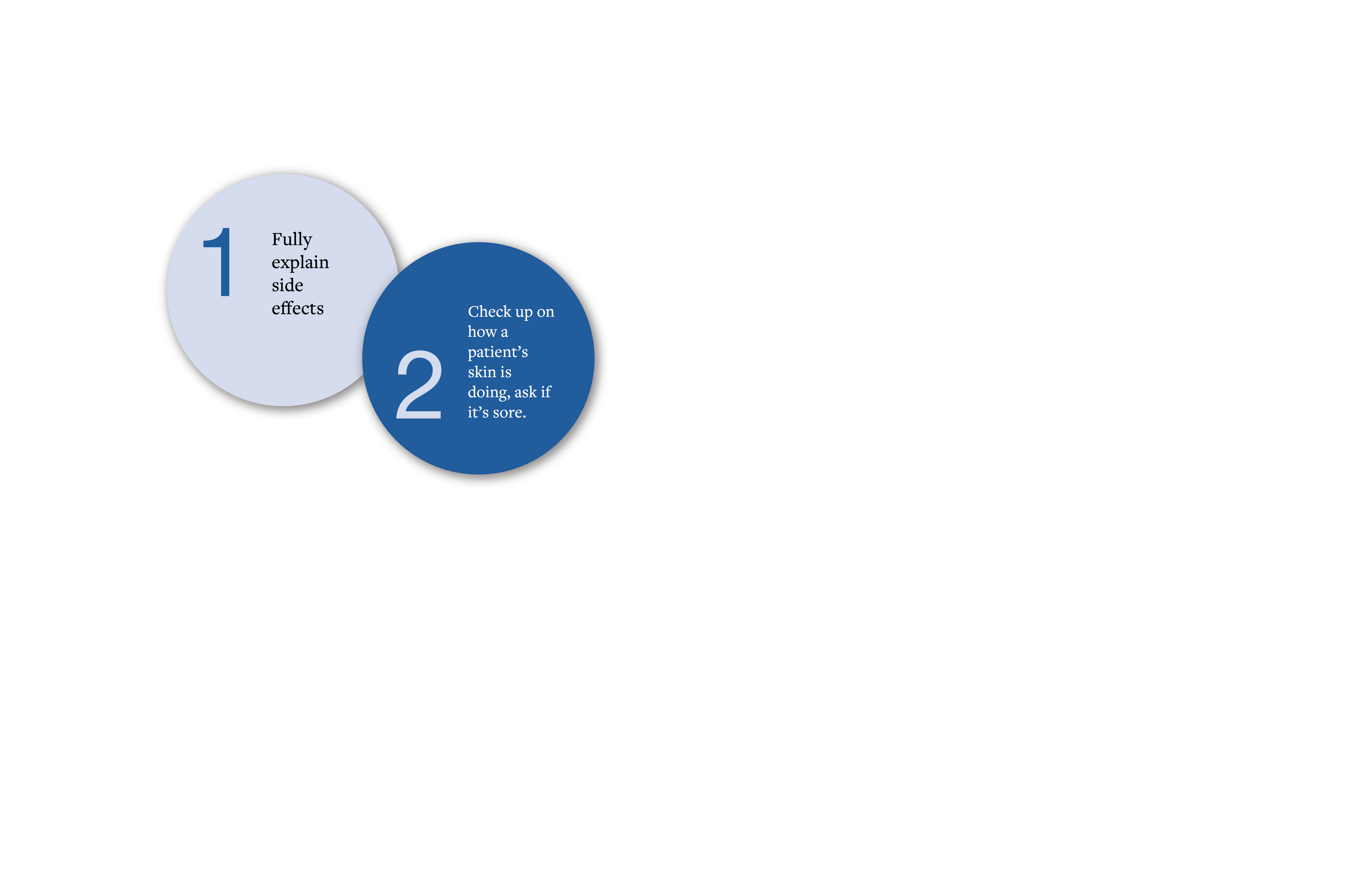
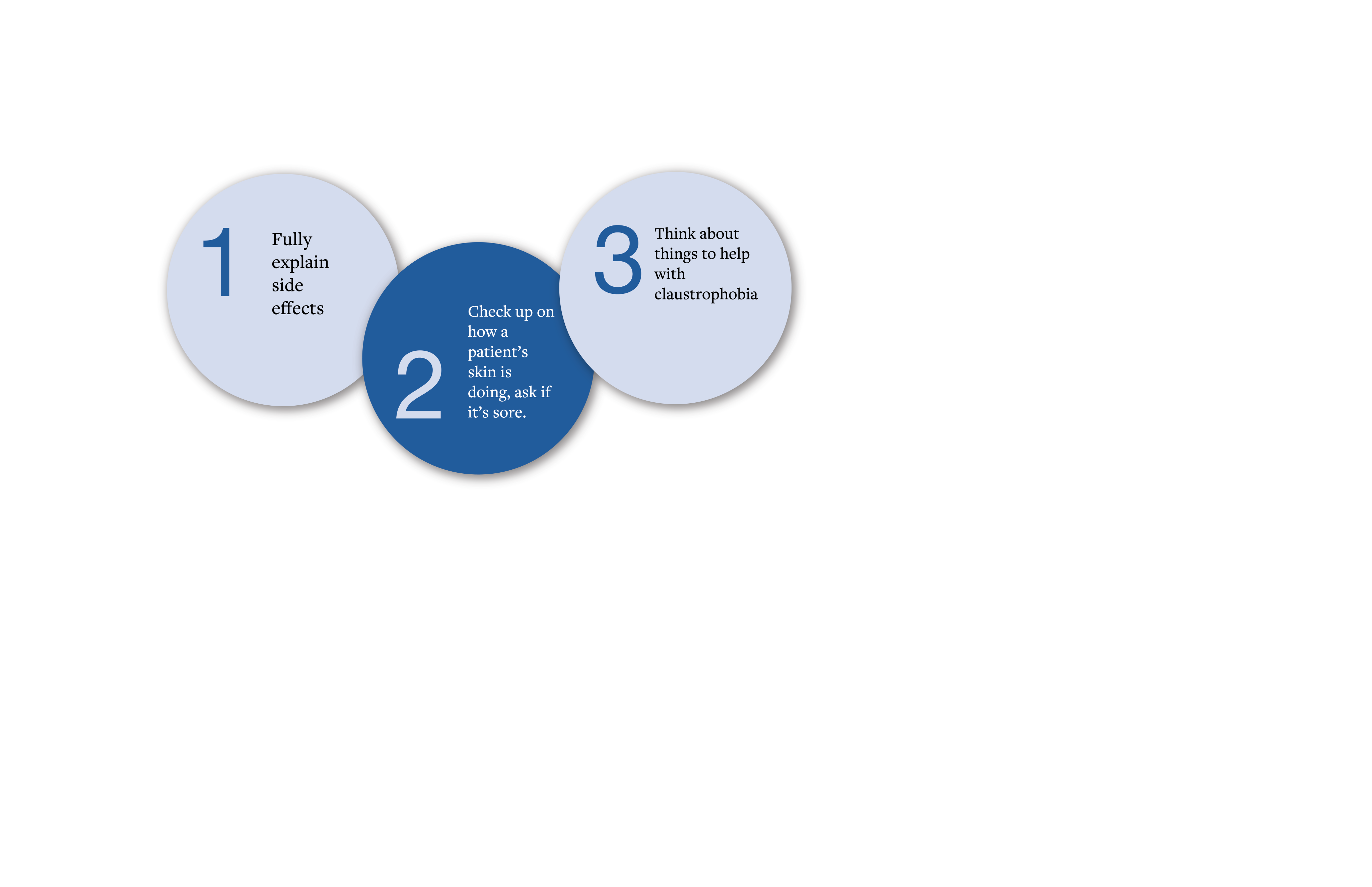
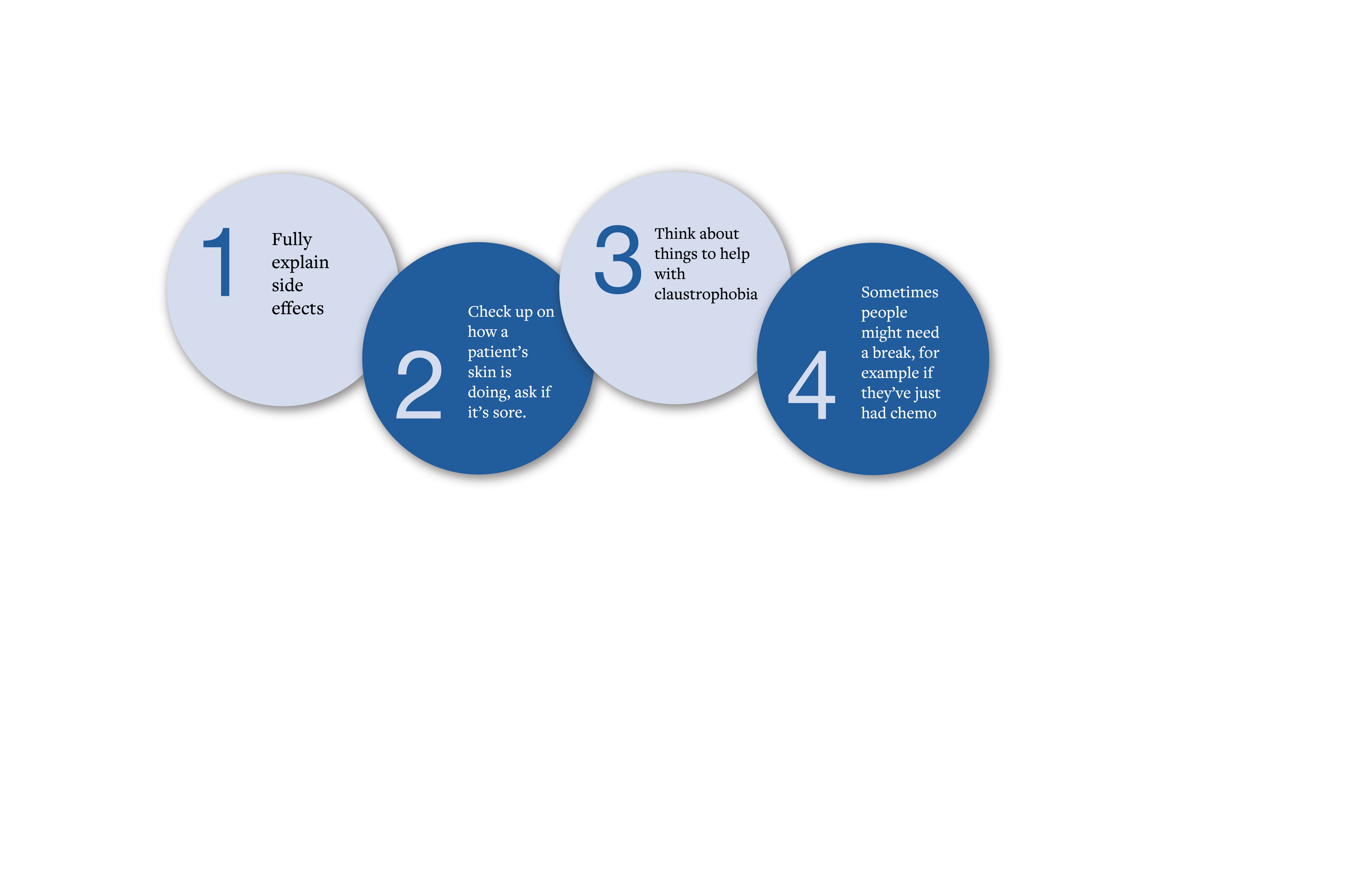
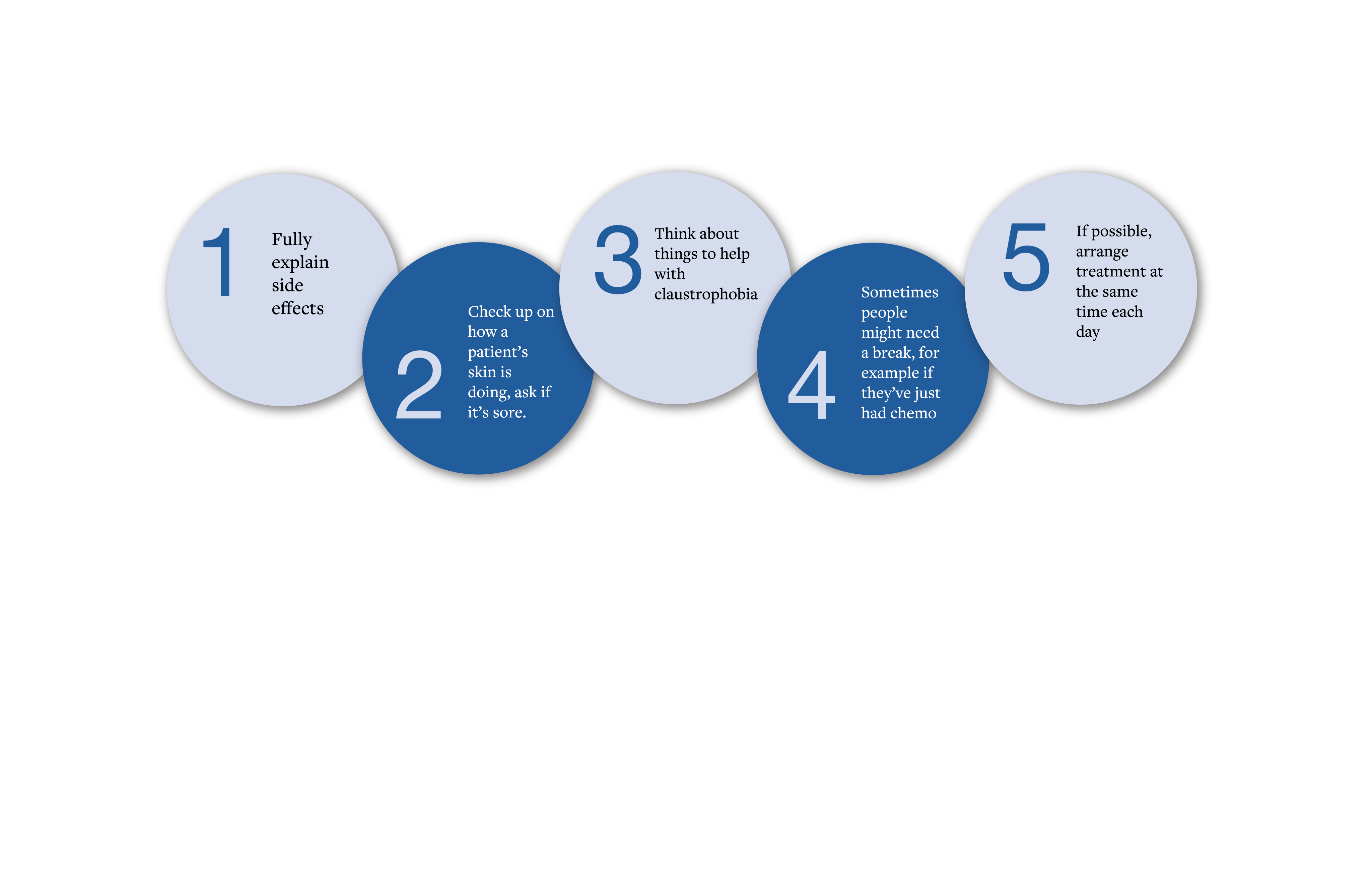
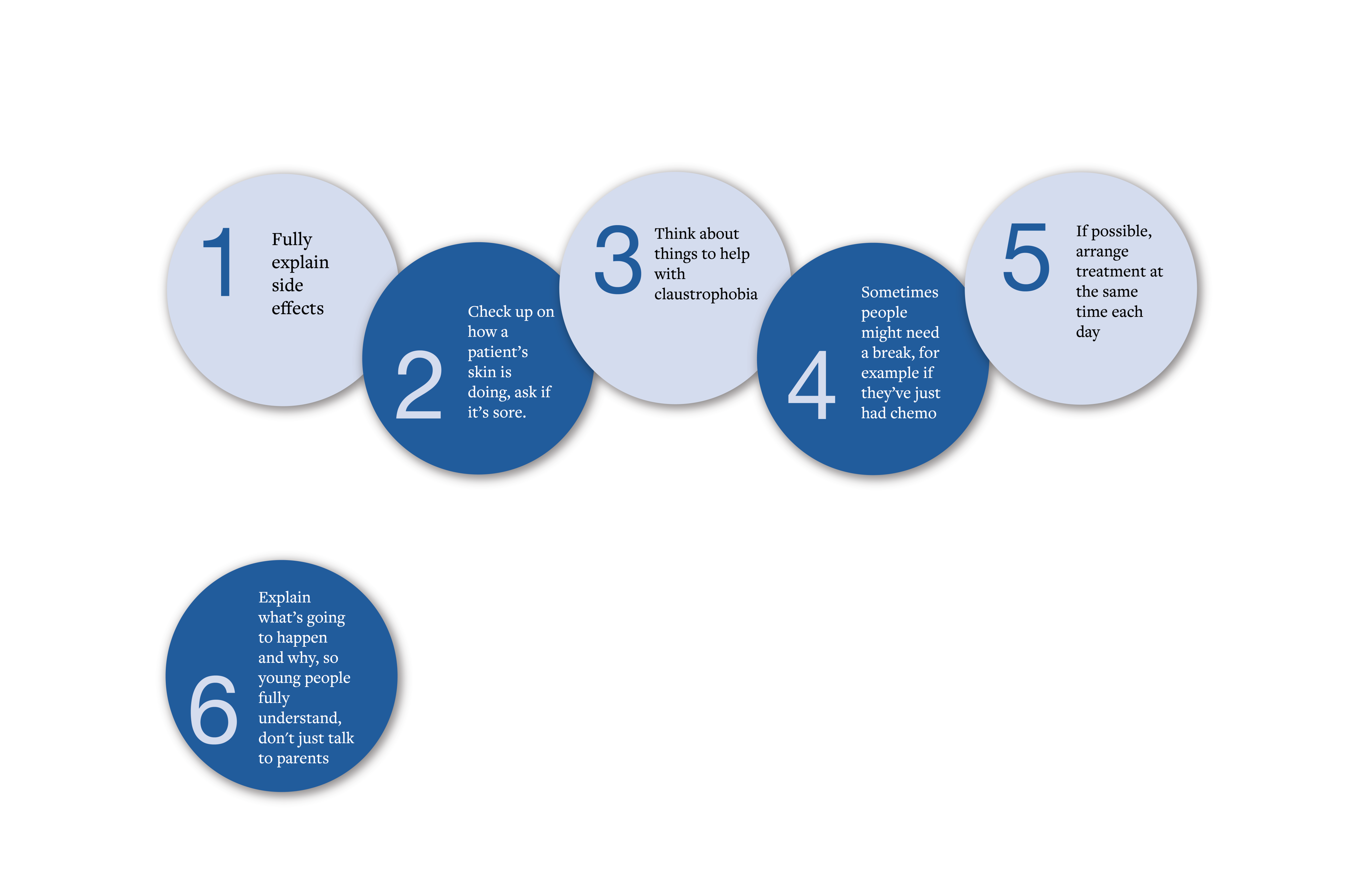
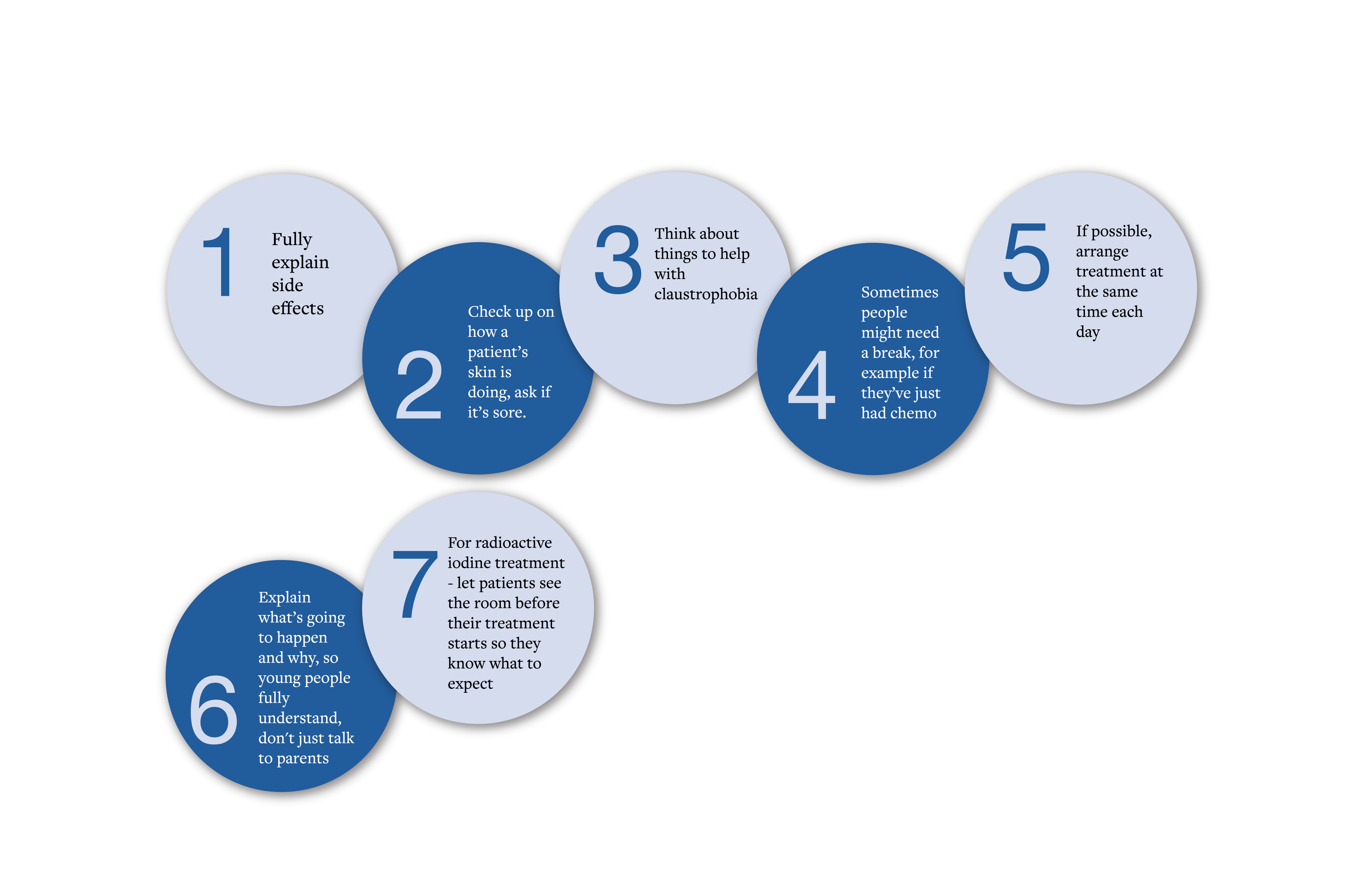
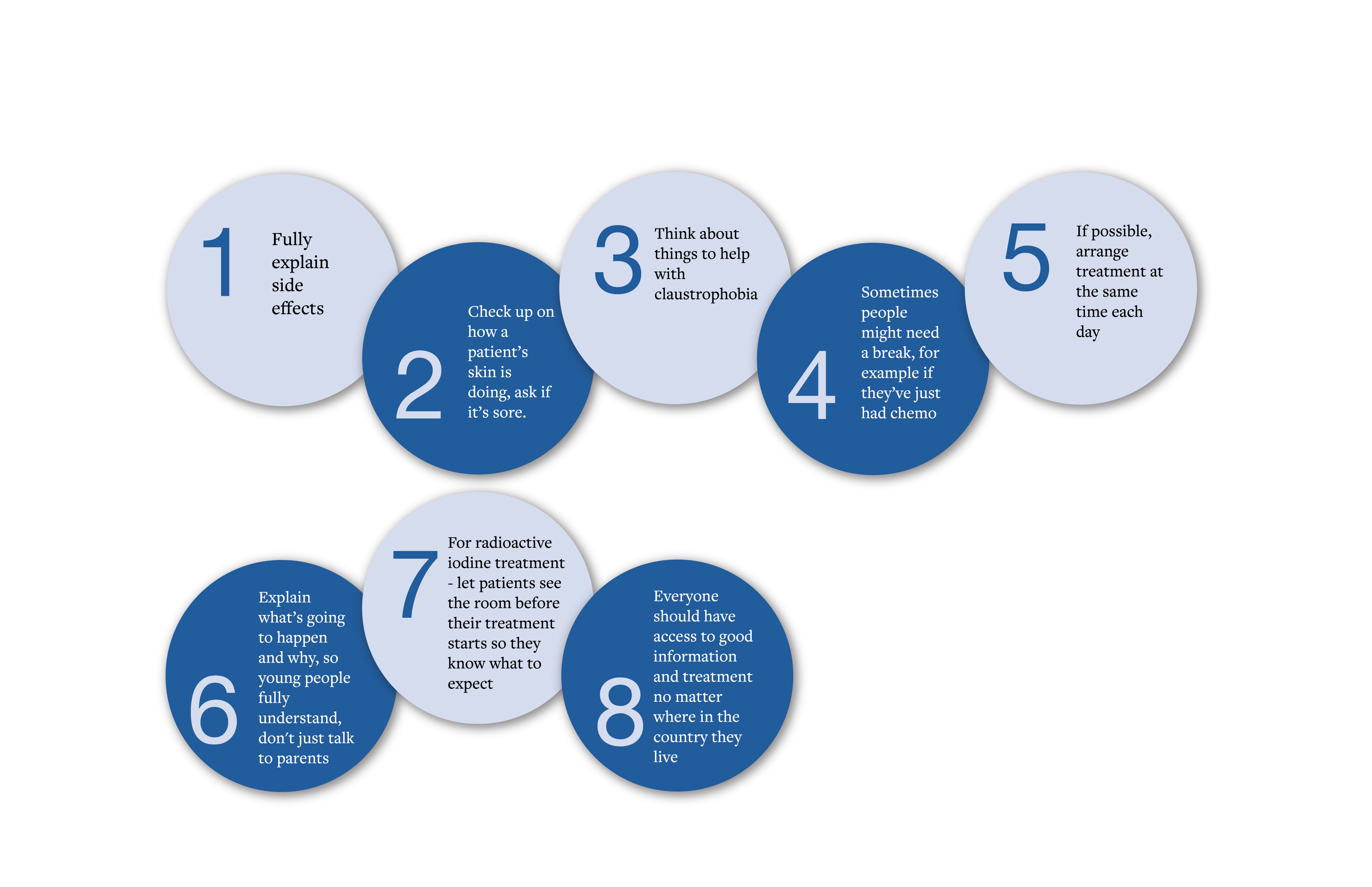
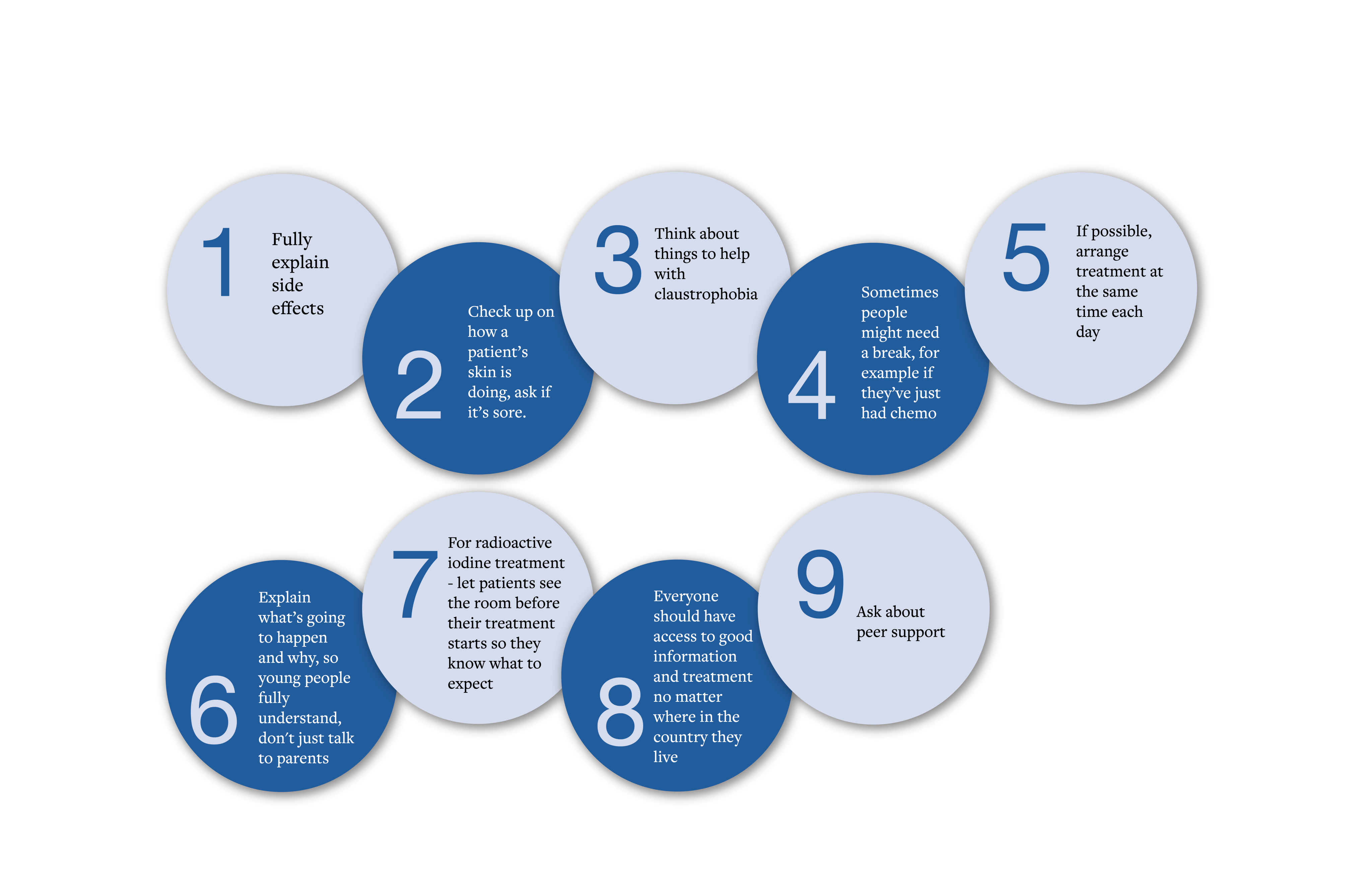
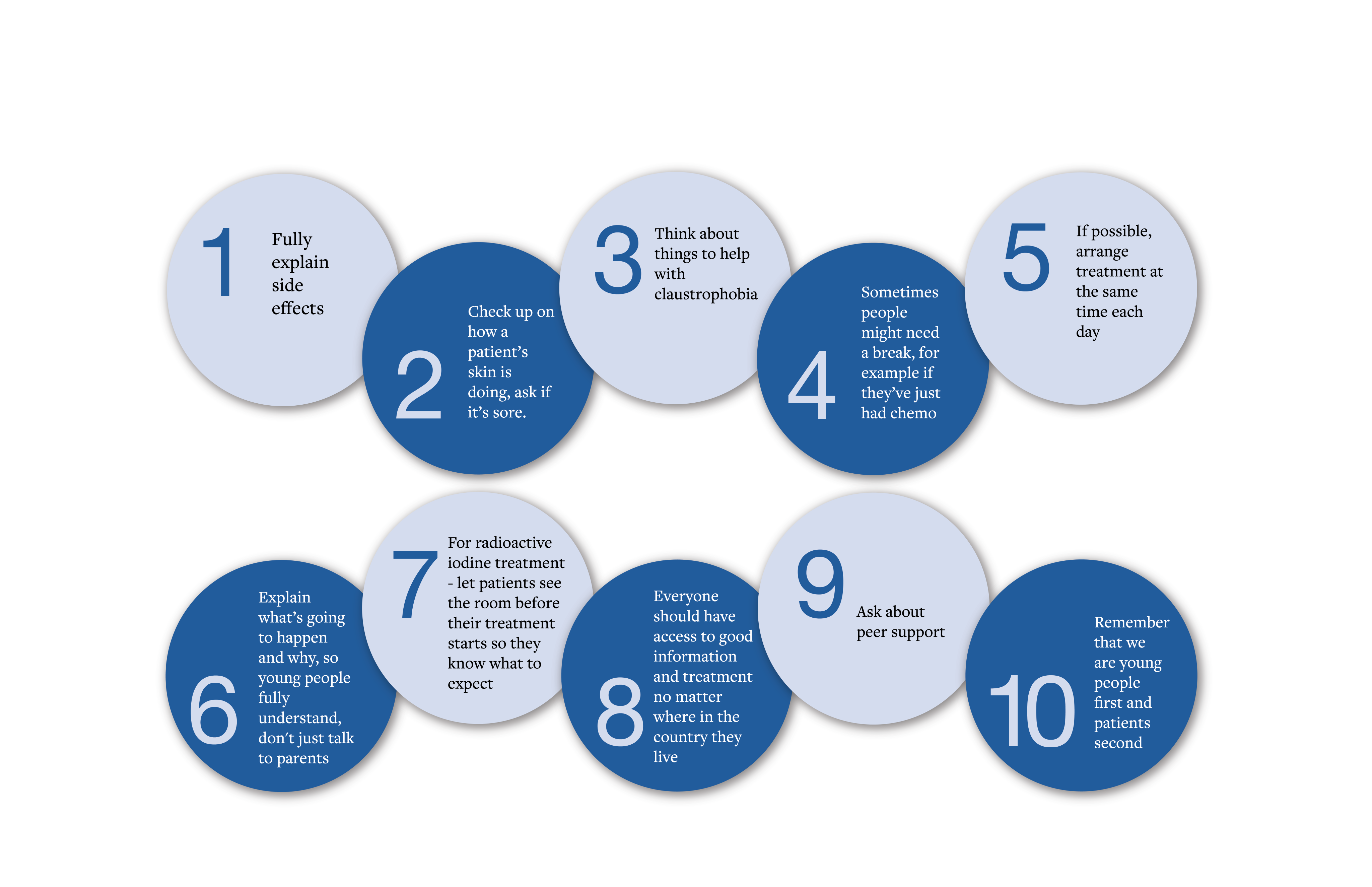
Legacy of the project
The project created lasting friendships, many of the group are still in touch today and regularly meet up socially and at events such as Cancer in Common. Several members of the group also recorded a special episode of the podcast Rad Chat.
One young person said: “I was able to make lifelong friends and able to connect with others who have had similar experiences to me.” Another young person said that the project “brought a sense of satisfaction that I was doing something useful with my experience.”
Many of the young people continued their involvement in subsequent patient involvement and engagement projects - for example some patients joined a new Patient and Public Involvement group at King’s College London called Science for Tomorrow’s Neurosurgery. Others took part in a public engagement arts project called Does AI Care? with the resulting artwork exhibited for six months at Science Gallery London as part of their AI season.
Then two months after the project officially ended, in May 2022, four of the young adults visited Barts Cancer Institute, London, for a laboratory tour with myself and two researchers, and visited our project partner, Centre of the Cell.
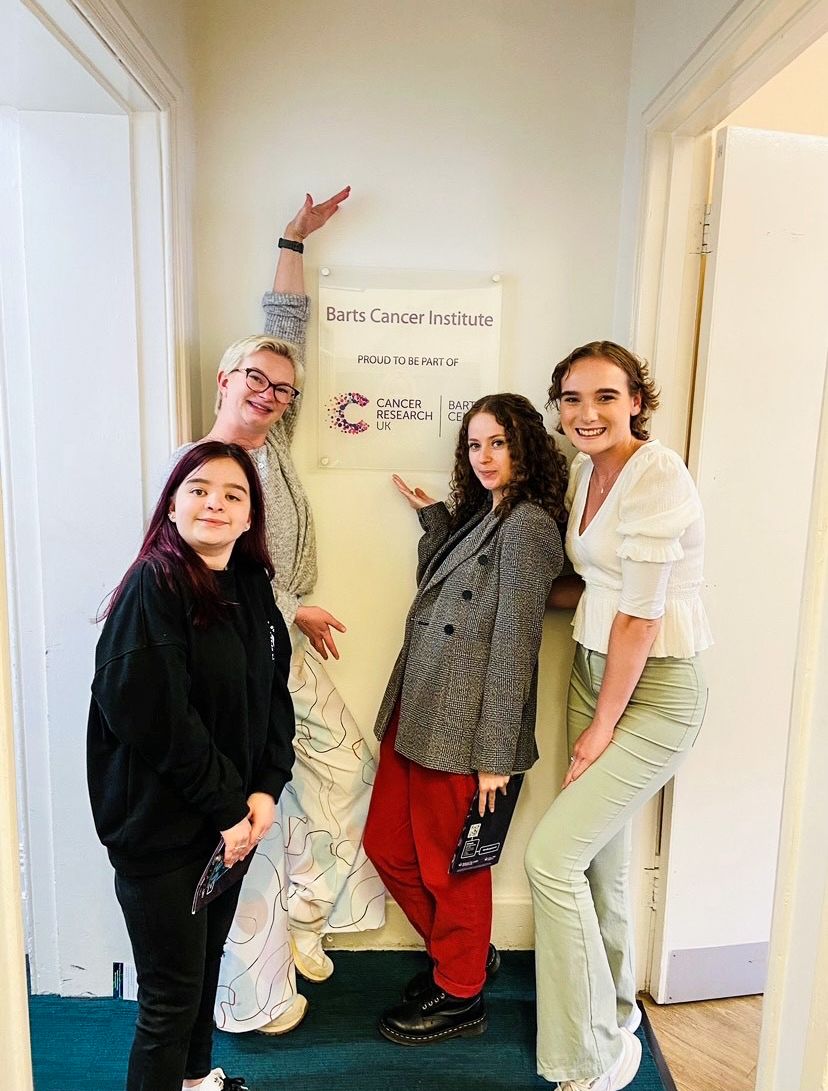
We found that once relationships had been built and trust established, conversations have continued between the young adults and researchers to help guide future radiation research. For example, two of the young adults had further conversations with Samantha Terry, now reader (then senior lecturer) at King’s College London about her research. Samantha hopes to now pivot her research to use a different radionuclide that would decrease the amount of time patients have to spend in isolation when being treated for thyroid cancer. The young adults were extremely supportive of this research and told her they would have the new treatment in a heartbeat to decrease loneliness and trauma and increase mental health if side effects and clinical outcomes are the same. They both agreed it was crucial this was looked into.
Recently, Dr Jamie Dean along with several colleagues from University College London applied for and received a grant to carry out further research towards understanding sources of variability in the efficacy and side effects of radiotherapy for children and young people: issues that the Radiation Reveal participants articulated to be important to them. The research team worked collaboratively with the young adults, asking them to review a summary of the planned research and share any feedback they had. Jamie and his colleagues appreciated support from two of the young adults and were delighted to be awarded a Data for Children’s and Young People’s Cancer Pilot Award. The grant will enable the researchers to understand more about why people respond so differently to radiotherapy and hopefully develop more effective and less toxic approaches for future patients.
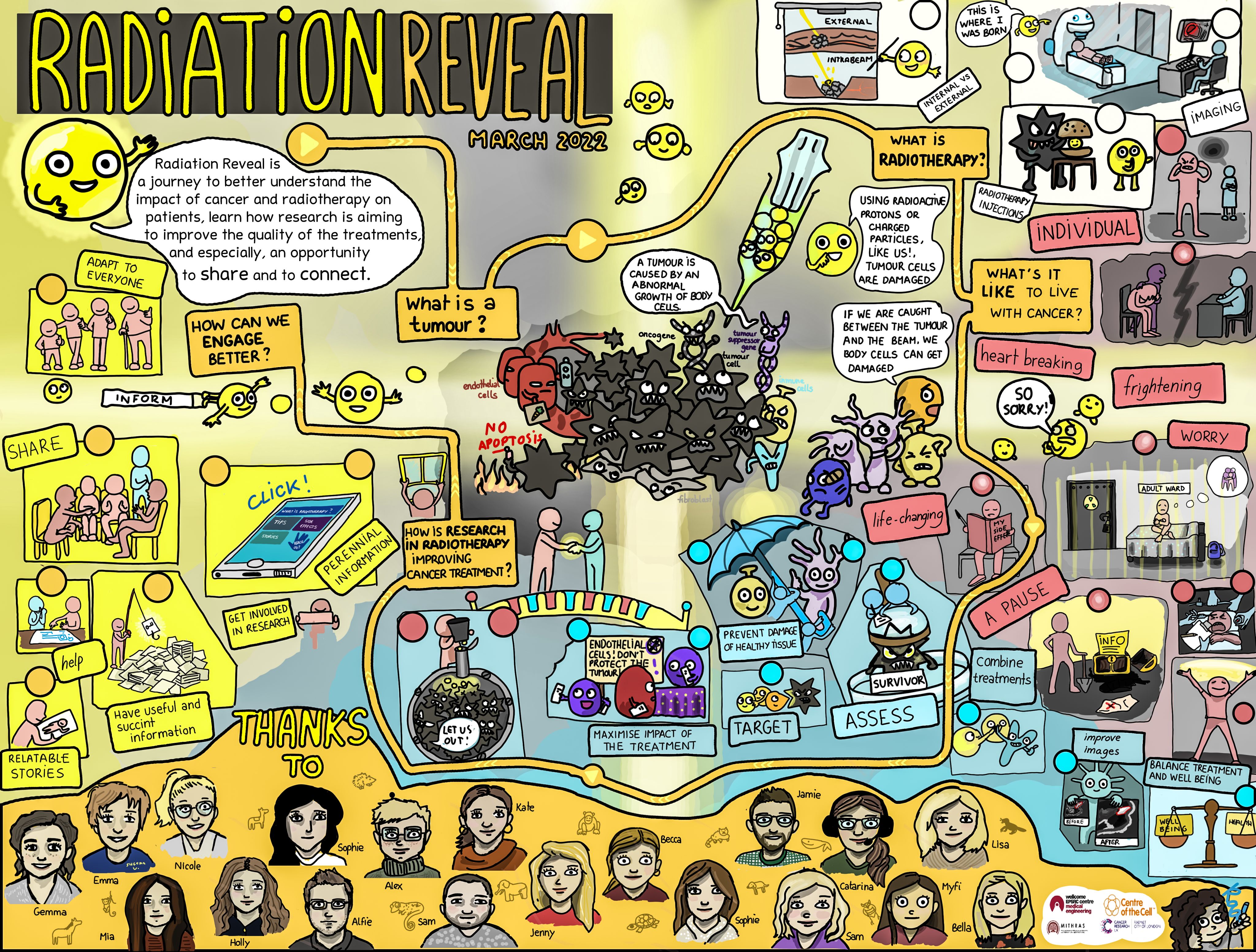
Credit: Virginia Fernandez
Credit: Virginia Fernandez
Inspiring others
Perhaps our biggest physical output has been a peer-reviewed paper about the project, now in press at the British Journal of Cancer. We were keen to write up the process fully to hopefully encourage others to do similar impactful projects. From the outset, we wanted to write the paper collaboratively with everyone involved in the project, especially the young adults. It was a lengthy one-year process and something new for many not familiar with the world of academic publishing. Young adults read and commented on paper drafts, and we kept them updated throughout. After some minor edits in early 2024 our paper was accepted and is now in print.
Public and patient involvement and engagement (PPIE) projects can be hard to predict. Bringing groups of people together who have never met can have varying degrees of success. Radiation Reveal was a very special project, it adds further weight to other work which highlights the need to listen to and understand young people’s experience of cancer and treatment. Radiation Reveal also shows what can be achieved when researchers and those with lived experience come together. We are sure that there will be many further outcomes from this brilliant, collaborative project.
Holly, who was diagnosed with bowel cancer in 2021 aged 23, sums up the project and everything that has happened since:
Radiation Reveal was a fantastic project, I learnt so much about research and, as young patients, we felt really listened to. The researchers were lovely, and it was nice to know there are people out there working on these things and trying to help us. The workshops allowed us to get to know everyone. So much has happened since the workshops in 2022. You could see how much we influenced the researchers in Radiation Reveal and it’s been great to have further conversations and support grant applications as a direct result of the experiences we all shared. The project inspired me to get involved in more patient involvement opportunities. I now co-chair the Patient Partnership Group for the East of England Cancer Alliances.
Dedication
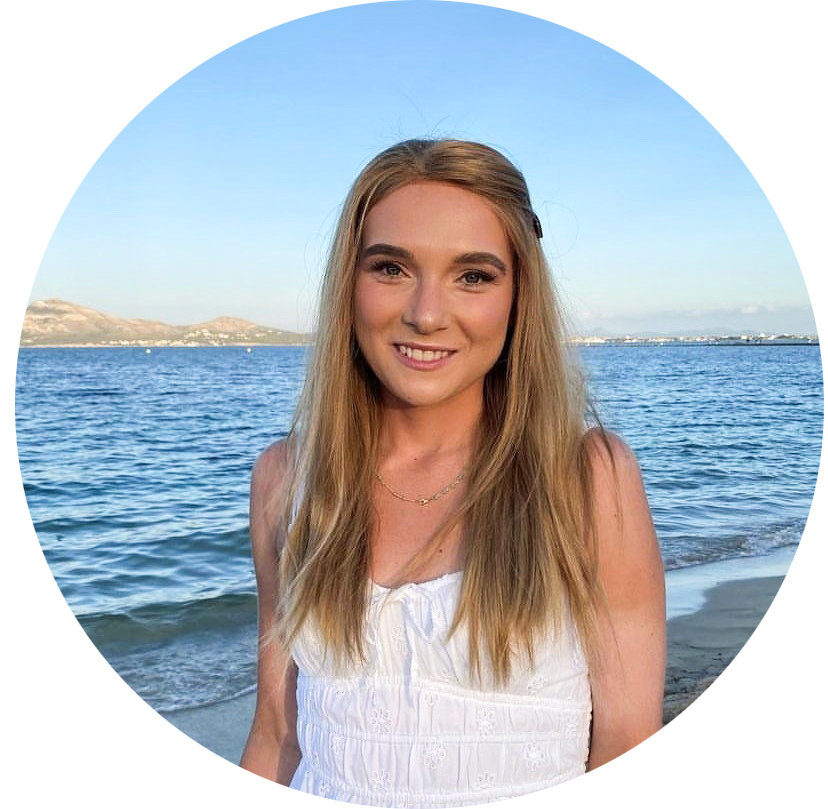
We would like to dedicate this article to Gemma Fay, who took part in Radiation Reveal. Gemma passed away peacefully on 30 July 2023, aged 25. Gemma loved the ocean, was a very talented artist and gained a first-class BSc in Psychology. She was a hugely valued member of the group with an infectious smile, warmth and enthusiasm which helped to make the project a success. We are so grateful to Gemma for her contributions and sharing her experiences to help others.
About Radiation Reveal
Dr Lisa Whittaker is the public and patient engagement coordinator for CRUK RadNet City of London based in the Centre for Medical Engineering, King’s College London.
Lisa and team extended their thanks to everyone who took part in the Radiation Reveal project, especially the young adults: Holly Masters, Alex Britton, Mia Cumbo, Nicole Burdis, Kate Mason, Gemma Fay, Emma Smith, Sam Benson, Alfie Halil, Sophie Lambert.
The researchers who took part in the project were:
Jamie A. Dean, Department of Medical Physics & Biomedical Engineering, University College London
Catarina Veiga, Department of Medical Physics & Biomedical Engineering, University College London
Sophie Langdon, School of Biomedical Engineering & Imaging Sciences, King’s College London
Rebecca Drake, Barts Cancer Institute, Queen Mary University of London
Samantha YA Terry, School of Biomedical Engineering & Imaging Sciences, King’s College London
You can also find out more about Centre of the Cell here.
Read more


